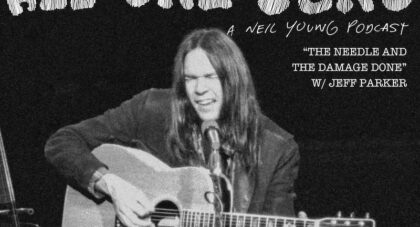In the smoking aftermath of Miles Davis's landmark Bitches Brew, musicians across the planet tried to come to grips with its dense, freaky, electric grooves. Aquarium Drunkard scoured the globe to bring you five hours of seismic seventies funk and fusion from far and near. The weather's changing. Nights are growing longer. And this is the way we all keep our heads right . . .
Only the good shit. Aquarium Drunkard is powered by its patrons. Keep the servers humming and help us continue doing it by pledging your support.
To continue reading, become a member or log in.


